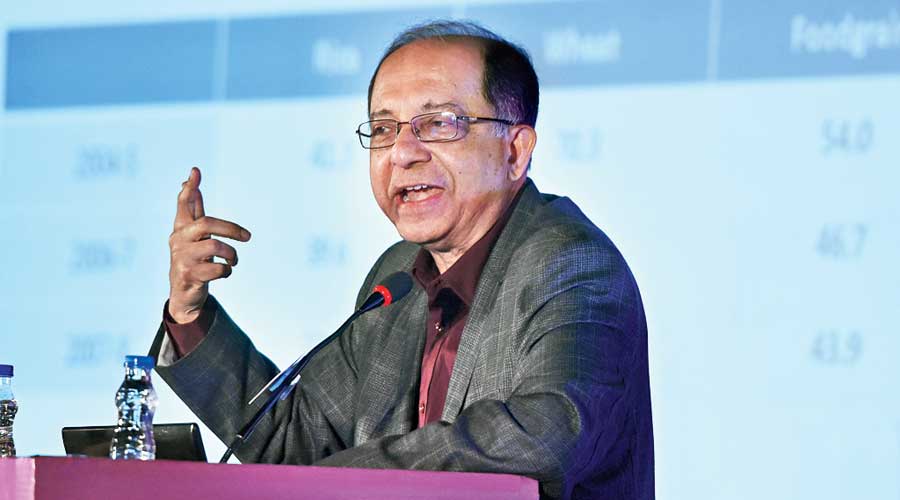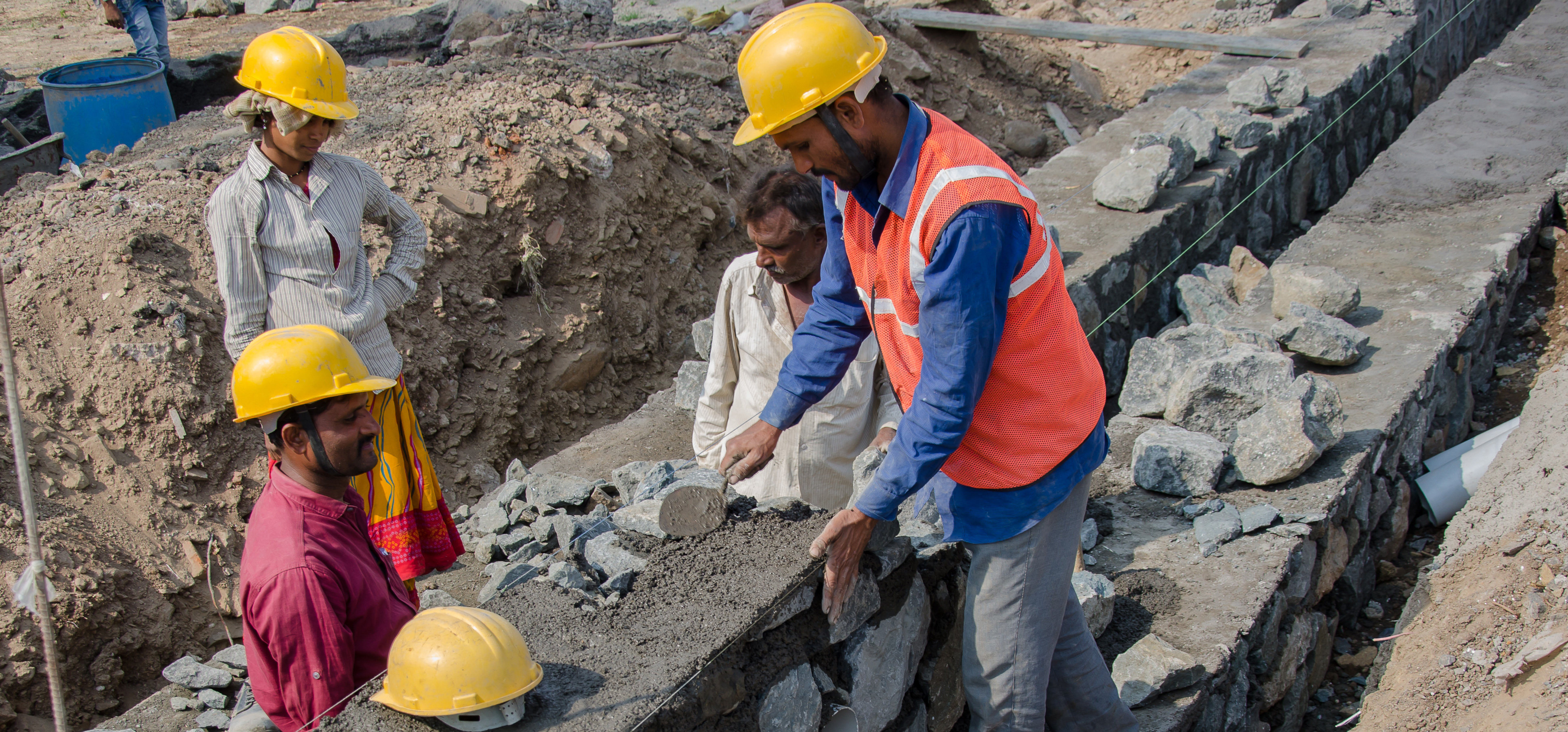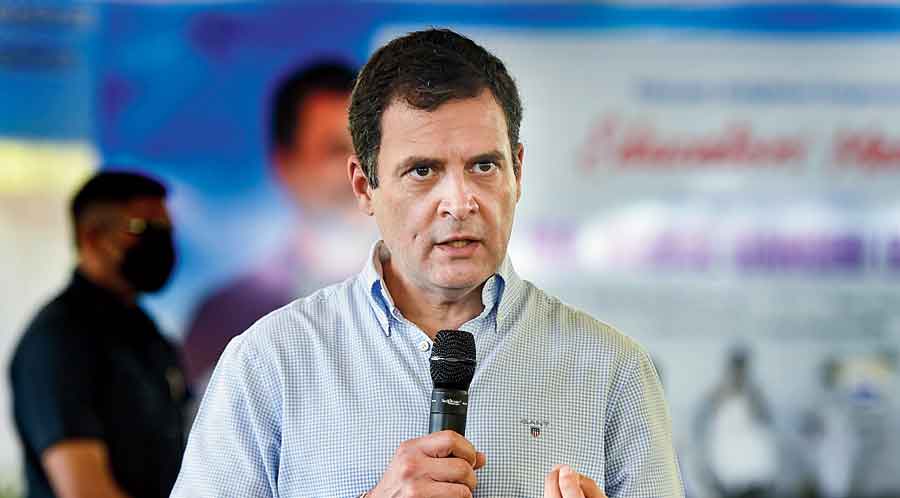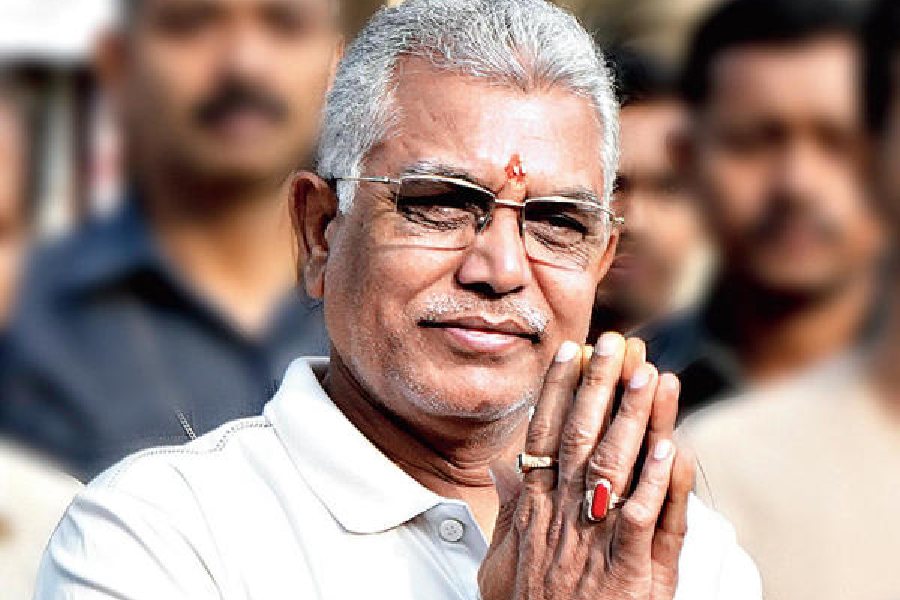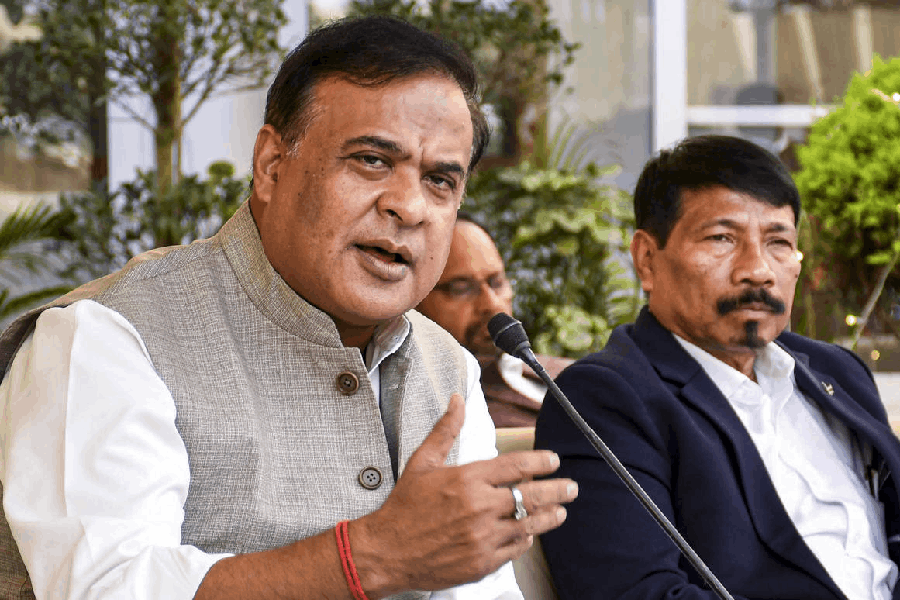Hiding data to please political masters is not only harming the once-stellar reputation of the country but also preventing policy-makers from taking corrective measures, former World Bank chief economist Kaushik Basu said on Friday.
“India is a pioneer in data collection. P.C. Mahalanobis was known for his contribution to the world in the field of data collection.... But it’s unfortunate that when things go wrong, there are attempts to hide data,” Basu said.
“Once you hide data, you are harming India’s reputation. And when you hide data, you also can’t take corrective measures,” he added, answering the question from this newspaper on the Centre’s reluctance to admit the economy was doing badly.
The question was fielded by Basu — a former chief economic adviser to the Government of India and C. Marks Professor of International Studies and Professor of Economics at Cornell University — during a virtual Q&A session after he had delivered an online address on “Economics in everyday life and the role of ethics”.
The lecture was organised by the Filix School of Education in Barandanga, Purulia, which is run by Nanritam, a social welfare organisation.
In his 50-minute address, the economist covered a gamut of issues in simple language before an audience that included schoolchildren. The topics ranged from the origins of economics to the history of economic crashes and the problems involved in the pricing of products to the challenges that inequality poses to the global economy.
Basu, who has been critical of the Narendra Modi administration and regularly commented on the de-growth of the Indian economy in his Twitter posts, didn’t refer to the government in his lecture but made it clear that the saffron ecosystem’s attempts at beating its own drum were not helping India.
A teacher per excellence -- known for his ability to make complex things comprehensible with lucid examples -- Basu spoke about India’s performance in vaccinating its people against Covid to underscore that transparency in data was needed to understand the actual situation.
“India has done reasonably well in vaccinating its elite population in urban areas, but the question is about the performance in rural areas in the north or east of the country.… India is a large country and so the absolute number of people vaccinated has to be high, but we have to look at what percentage of people are fully vaccinated,” he said.
“I was looking at this number yesterday and saw 109 countries were ahead of India. I think one has to be transparent in sharing data,” added Basu, who is often attacked by saffron trolls for posing tough questions.
While the numbers the government has disclosed on vaccination have opened a new area of controversy, there have been doubts over the last few years about the new series of GDP estimates, which have often showed trends at variance with independent sources of data. Doubts have been raised by independent researchers over some of the data on consumption, production and deflators used in official calculations.
“During my days in the World Bank (2012-2016), I used to take pride in the numbers sent by India.… Although some of the numbers didn’t look that good, they were at least transparent. But we are sliding on this area,” Basu said, alluding to the changes the Indian data collection system has gone through since the change of guard in Delhi in 2014.
Not only did Basu rue the changes in the dissemination of data, he referred to the poor showing by the Indian economy over the past few years.
“From 2016, every year growth has been less than the previous year’s.… We are doing badly. We all know that unemployment is shockingly high in India,” he said.
He also mentioned the change in the world’s perception of India during the Q&A session when he was asked whether India was heading towards a catastrophe.
“Until 2015, most of the writing on India in The New York Times or Financial Times or The Wall Street Journal was very positive.… We were known as a country that could tolerate people of different faiths. India was known as a country espousing the values of inclusiveness, but unfortunately we are unwinding from that,” he said.
Basu, however, said he was still hopeful about the country as India had very strong fundamentals.
He didn’t prescribe a path to recovery for the Indian economy but went on to explain what had triggered the world’s biggest famine in China in 1960-61, subtly weaving around the account a suggestion that India needed to change its present style of governance.
“In 1959, Mao Zedong started the Great Leap Forward (an attempt at reconstructing the country from an agrarian economy to a communist society) by crushing the laws of the market.… He was so powerful that no one dared tell him that the economy was going to crash. When people were dying, the reports that went to him said that everything was fine. Soon, the Great Leap Forward became the cause of famine in which 30 to 40 million people died,” Basu said.
He kept the audience riveted with an account of how the fate of economics would have changed had Adam Smith, the father of modern economics, not been rescued from kidnappers who had snatched him at the age of three.
Basu, who takes a keen interest in game theory, spoke of his meeting with Nobel-winning economist John Nash, whose life inspired the movie A Beautiful Mind.

